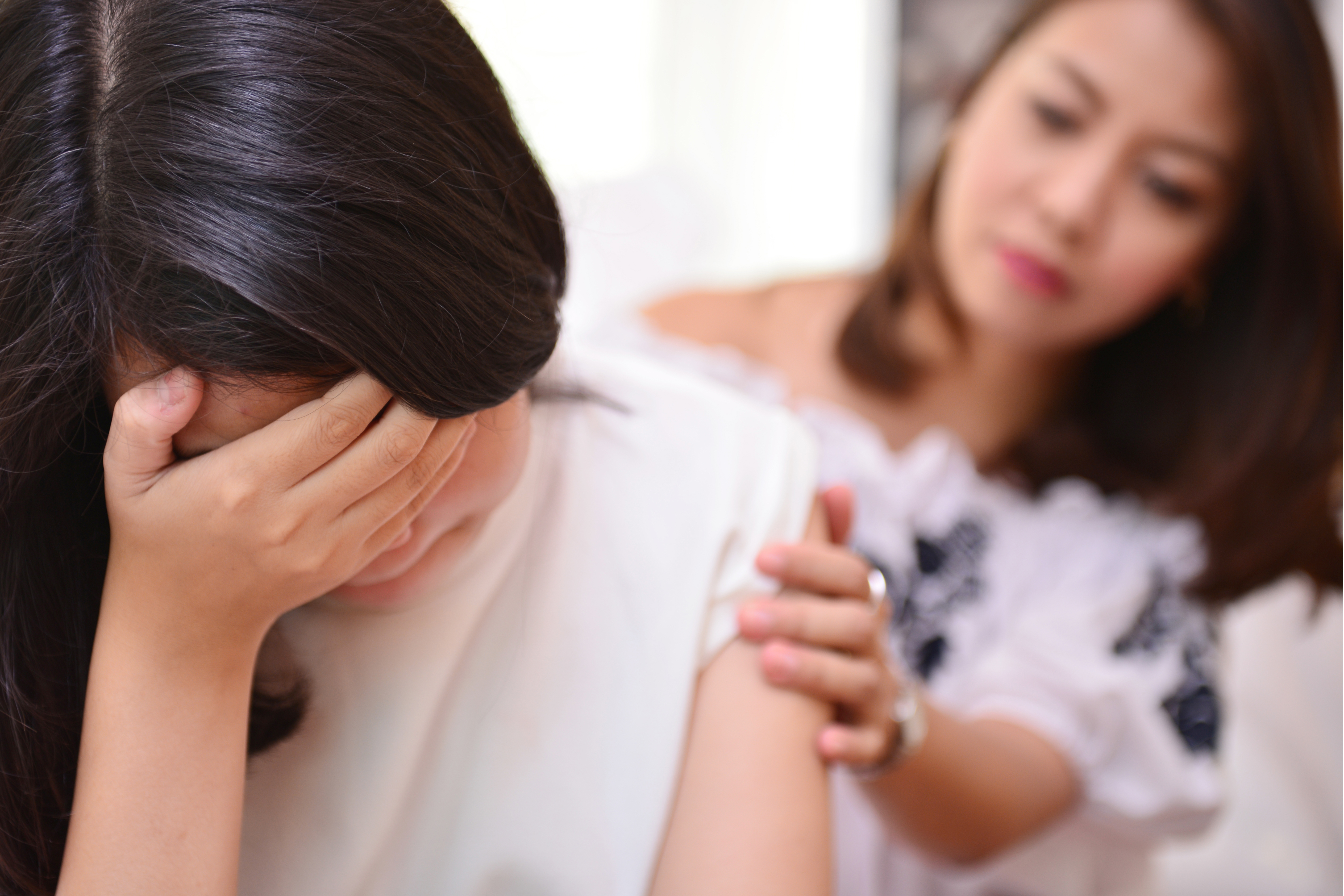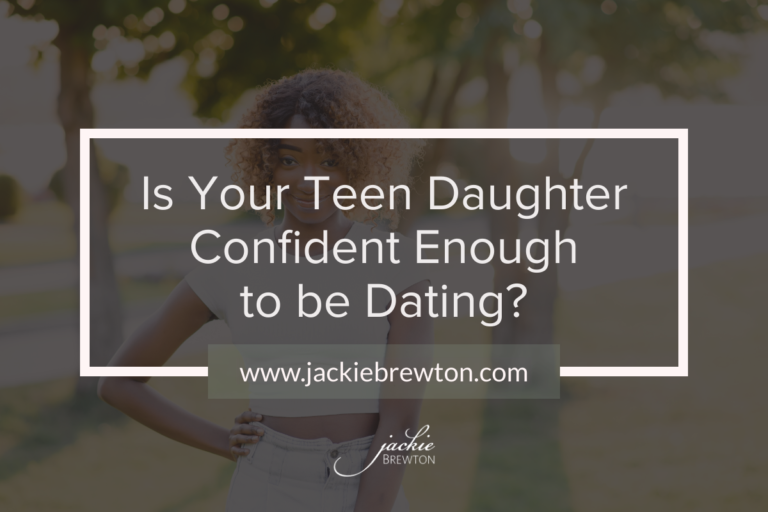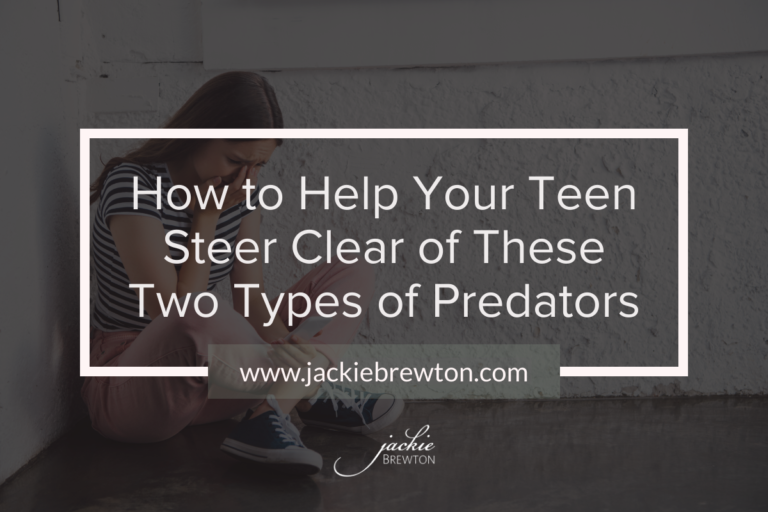Why You Need to Talk to Your Daughter About Sexual Assault

April is Sexual Assault Awareness and Prevention Month.
And ironically, in March I received a noticeable increase in the number of letters I typically get from girls who’ve been raped or molested.
Most times I don’t know who the girls are because the letters are written anonymously.
But one particular young lady didn’t just write me a letter.
She also sent me a message via Instagram and an email on my website, determined to get my attention.
This is the email she sent me after I spoke in her class:
“Hello Ms. Jackie, I wanted to let you know your speeches are VERY POWERFUL. I was raped at the age of 13 and I never told anyone until this year. After I was raped, I felt like my world was over. I felt as if I was damaged and that everybody only wants me for sex. I’ve told myself for years that I’m not a virgin anymore but when you told another girl’s story about being raped, it gave me hope that I can make it through this. And it let me know that I wasn’t the only one out there feeling that way. You really helped me. I felt like God sent you to my class just for me to hear that. Thank you so much.”
I asked her to come by to see me when I was back at her school later that week.
When we spoke, she said she was in therapy, but refused to discuss the rape with the therapist because it was too painful.
I told her that the only way she was going to get through this trauma was to deal with it so she could put it behind her.
And take back the power to control her future from the perpetrator.
I made her “pinky-promise” that she’d discuss it with her therapist the next time she went.
A few days later, she sent me this email message:
“I’m really glad I came to see you Friday. Your words are very powerful and I absolutely love talking to you. So, I went to see my therapist yesterday and I told her I was ready to work through my trauma.”
Anytime I can encourage a teen to address the trauma that’s causing her to doubt her value is a huge WIN!
Repairing the Damage of Girls Believing They’re “Damaged Goods.”
Feeling like damaged goods is the overriding theme in the letters that girls write me.
Many times, this feeling leads them to make unhealthy choices.
Because they believe they’re already damaged, it’s no big deal to continue having sex.
Like this young lady whose letter broke my heart, then gave me hope:
Ms. Jackie,
I was in no way looking forward to your lessons. I wasn’t all too excited to hear some lady tell me what to do. However, after that first class I really began to question my original opinion of you. I was very interested in the words you spoke and how they resonated with me. There was nothing I didn’t like about the presentation. I loved it. I loved how you pulled us all in. I love how you spoke about things we actually cared about, and I love how you made me realize a few things about myself.
Because of things that happened in my past, I saw little worth in myself. Because I only saw myself as used, it became easier for others to use me. It was easy for my ex-boyfriend to tell me that I should feel ‘lucky’ that he wanted to have sex with me, that there were girls much prettier so he was ‘doing me a favor.’ It was easy for me to say yes and take my clothes off that night…Those nights. It was easy for me to let him define my worth—that if a guy wanted to have sex with me, I was worth something. But, only when I had my legs open—not when I was fully clothed and happy. My worth was only when I was having sex. Only when I was sending nudes. I believed these guys I was with loved me because they wanted to have sex with me. Sickening right? I found my worth and value in sex…
So, thank you…thank you for helping me put a stop to my downward spiral…Your lessons might have changed my life. Thank you. I hope others get this opportunity. I hope you can help others like me. We need this…being ‘broken’ sucks, people like me need a little push to find our value. Because, we’re not broken, we’re just scared…We’re not ‘used,’ ‘disgusting,’ ‘unwanted.’ We’re just scared. We need to know we have value, so, thank you!
Letters like the above are what keep me doing what I do!
Most people would be shocked to know how many teens have been raped or molested, and how many of their poor choices are a result of it.
That’s why I created my How to Have the Tough Conversations with Your Teen Daughter ecourse.
Rape and molestation is one of the tough conversations NO parent wants to talk to their daughter about.
But it’s the first step toward repairing the damage done to girls who’ve survived it.
Does that include your daughter?
The truth is you may never know if you never talk to her about it.
(Most girls who confide in me about their rape/molestation tell me I’m the first person they’ve ever told.)
Allow me to help.
How to Have the Tough Conversations will guide you step by step through the uncomfortable process of talking about rape/molestation with your daughter so you’ll know what to say and how to say it.
Even if you don’t believe this is an issue for her, isn’t it worth finding out for sure?
I certainly pray that this is NOT a part of your daughter’s story.
(If it isn’t, you’ll still be equipped with tools you can use to more confidently engage your daughter in the other tough conversations.)
But if it is, you’ll now know to get your daughter the professional help she needs so she can
…address the trauma head on.
…take back the power to control her future from the perpetrator.
…begin the process of discovering that she is NOT damaged goods.
P.S. Please don’t allow the uncomfortableness of talking about sexual assault prevent you from having this tough conversation with your daughter. Her well-being may very well depend on it! If you’re not sure how or where to begin, my e-course can help.
P.P.S. Perpetrators count on parents not talking to their kids about sexual assault. And they rely on their victims remaining silent. So, when we don’t talk about it, they win. Well, I’m sick of them winning. And I know you are too! Help me keep the conversation going by sharing this post with everyone you know on Facebook. And maybe together we can prevent more girls (and boys), from feeling like they’re “damaged goods.”



